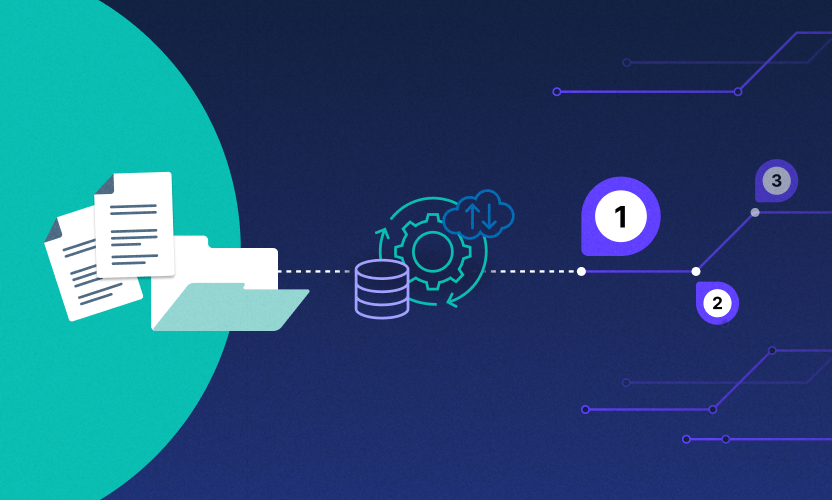
Top Collaboration Challenges In Clinical Trial Outsourcing
For biotech organizations, collaboration is the lifeblood of clinical research. A typical clinical trial depends upon constant communication, data sharing, and myriad other interactions among sponsors, sites, CROs, and participants. A breakdown in collaboration can cause delays that threaten the entire operation.
Things get even more complicated as you factor in the growing role of outsourcing in biotech research – BioSpace reported this year that the Biotech and Pharmaceutical Services Outsourcing market is expected to grow from $63.1 billion in 2020 to $105.4 billion by 2030. In decentralized clinical trials, sponsors rely on vendors to help source and manage data outside of traditional sites. Without the right approach, this boom in outsourcing, while necessary to stem rising study costs, facilitate decentralized trials, and more, can create hurdles to effective collaboration.
More outsourcing, after all, means more stakeholders, and in clinical research today, those stakeholders often operate out of widely dispersed sites and offices. Technology shows great promise in bridging the gaps between geographic locations, but it’s not a panacea; it can bring its own challenges.
Keep reading to discover some barriers to effective collaboration during increased clinical trial outsourcing. We’ll explore the top challenges organizations face and why overcoming those challenges depends on a three-pronged approach of people, process, and technology.
Breaking Down Technological and Geographic Silos
The rise of clinical trial outsourcing has created a technology boom. A slew of eClinical innovations have entered the scene to facilitate multi-stakeholder collaboration in clinical data storage, patient-reported outcomes, informed consent, and more. But it’s not enough for vendors simply to be technology-enabled. Suppose a sponsor works with half a dozen vendor partners, and those vendors’ technology platforms can’t exchange data with one another smoothly. In that case, collaboration can get messy – or even grind to a halt.
And the barriers go beyond just technological obstacles; human processes also come into play. Things quickly get complicated if two stakeholders collaborate on a file but use different nomenclatures, formats, or even languages to present the data in that file.
This is an increasingly common issue in clinical research today, which should be no surprise. With biotech, including international outsourcing, stakeholders often bring a wide variety of norms and standard operating procedures to the table.
Keeping Data Secure as It Travels the Globe
The transition from paper-based to digital processes has largely neutralized many physical data security threats that were once common in clinical research. This is especially true when files are stored in the cloud, reducing concerns about accidental files being lost or damaged.
However, digitization also creates new challenges. Every time collaborators exchange data, that data is potentially vulnerable. And given the extremely personal and private nature of clinical data, which often includes participants’ PHI and sponsors’ proprietary information, it’s hard to overstate the significance of cybersecurity considerations in biotech clinical trials.
So many organizations in the clinical research space use Egnyte expressly because they deal with highly sensitive data. Those companies are frequently the target of online attackers, so they rely on Egnyte’s powerful capabilities to protect and control sensitive data.
Where To Go from Here?
As the industry reckons with these issues, organizations may be tempted to take a one-track approach. They might go all-in on technology and try to use the eClinical functionality at their disposal to power through any challenges they face. Or they might resist any further digitization of their processes out of concern about the challenges discussed above.
But the truth is that neither of these approaches is ideal. Instead, organizations would do better to take a more holistic approach that places an equal emphasis on people, processes, and technology.
The industry needs to get stakeholders to speak the same language on technology. This can be interpreted literally – localization of platforms and digital files would go a long way toward breaking down barriers among internationally dispersed sites. More than that, it means building standards and leveraging APIs to make digital data sharing and collaboration as seamless as possible.
And organizations that rely heavily on outsourcing need to ensure data is shared securely. That means devoting more of the tech selection process to evaluating vendors’ cybersecurity capabilities.
Also, organizations must understand that having a great tech stack will not facilitate better collaboration. Technology doesn’t work without processes in place – organizations must create an agile, interconnected workflow and then fold their technology into that workflow.
On the “people” side of things, an organization’s greatest asset is patience, as hard as that may be to hear in an industry in which speed is paramount. Clinical research is changing rapidly and drastically, and many people are new to decentralized clinical trials and much of the technology in trials today.
Remember that we’re all here for the same reason: to bring life-saving medical products to market. It behooves any organization to invest the time and resources necessary to get their teams up to speed, rather than throwing them into the deep end and hoping for the best.
Learn More
Earlier this summer, we sat down with Sandeep Bhat, Senior Leader, Digital Partnerships and Digital Engagement, Global Clinical Operations at GSK, to explore how to facilitate collaboration and alignment among clinical trial sites, CROs, and sponsors. Watch the entire discussion for insights into this critical subject for biotechs everywhere.





